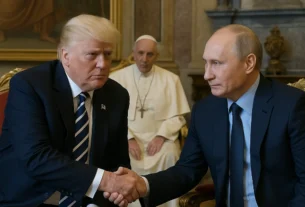OWERRI, NIGERIA – In a horrifying twist of betrayal and brutality, the peaceful farmlands of Umuora Umuohiri in Imo State became the stage for a nightmare of a man beaten to death not by strangers or criminals, but by his very own kinsmen.
Mr. Chibugo Amadi, a 52-year-old father of eight and respected community member, was tortured to death in broad daylight over a land dispute that spiraled into a deadly case of jungle justice. According to a shocking petition by the Stand for Humanity Foundation, his killing was not only premeditated, it was orchestrated by those he once called family.
The Deadly Setup: A Peace Meeting Turned Death Sentence
The tragedy began with a land quarrel between Chibugo and his younger brother, Ezemonye Amadi. During a heated confrontation, Chibugo allegedly inflicted machete wounds on Ezemonye. Fearing backlash, he fled the community unaware that a far more sinister plot was already unfolding behind closed doors.
While he was in hiding, the community allegedly held a clandestine meeting, fined him ₦850,000, and sold four of his own plots of land at an absurdly low rate ₦200,000 per plot instead of the ₦1.5 million market price. They raised ₦750,000, claimed it went toward the fine, and declared that a “final settlement” would bring peace.
But the final settlement turned out to be a death trap.
Dragged to the Shadows: Torture in the Name of ‘Justice’
On his return, lured by promises of reconciliation, Chibugo was instead abducted and taken to Mkpacha Umuora, a secluded part of the village known for traditional punishments. There, he was savagely beaten, tortured, and left in a pool of his own blood by his accusers.
Despite being rushed to a hospital in nearby Okwelle, he was pronounced dead on arrival. His battered body was quietly deposited in the morgue as the attackers vanished into the shadows.
A Widow’s Cry: “They Killed My Husband Like an Animal”
Mrs. Chinonye Amadi, now a widow with eight children, was left shattered. With nowhere to turn, she approached Stand for Humanity Foundation, a human rights organization known for exposing brutalities that often go unpunished in rural Nigeria.
“They killed my husband like an animal and sold his land to pay themselves,” she wept. “Now they’ve disappeared. What happens to our children?”
The Fight for Justice Begins
The Foundation’s founder, Chidiebube Okeoma, vowed to bring the perpetrators to justice. “This wasn’t a dispute. This was a premeditated execution masked in tradition. This is jungle justice, and it has no place in a civilized society,” he told journalists in Owerri.
The organization has filed a formal petition with the Imo State Commissioner of Police, CP Aboki Danjuma, who has directed the Homicide Unit of the State CID to launch a full-scale investigation.
A Dark Pattern: When Tradition Becomes a Death Warrant
The gruesome killing of Chibugo Amadi has reignited urgent conversations around the dangers of unchecked traditional authority and mob justice in Nigeria’s rural communities.
While jungle justice has long been condemned by human rights activists, it still thrives in silence fuelled by fear, superstition, and the absence of swift legal systems. In many cases, victims never get a voice. But Chibugo’s case may finally change that.
“This is not just about one man. It’s about every Nigerian who’s ever been silenced by tradition or terrorized by their own people,” said Barrister Chijioke Onwubuariri, legal adviser to the Foundation.
The Call for Action: Who Speaks for the Dead?
As police investigations unfold, the Foundation is demanding immediate arrests and public prosecution of all involved. But justice for Chibugo Amadi may mean more than courtroom trials; it could signal the beginning of a national reckoning with the brutal tradition of jungle justice.
Will Nigeria finally rise to protect its most vulnerable? Or will another name be added to the long list of forgotten victims?
For now, one thing is certain: the haunting silence in Umuora Umuohiri is no longer just the echo of tragedy. It is the sound of justice knocking.




